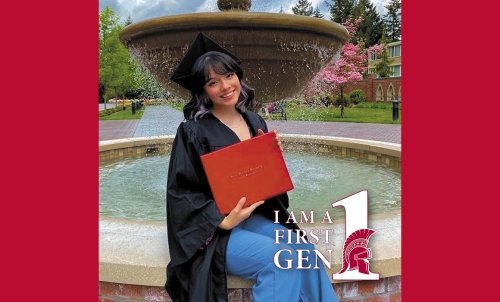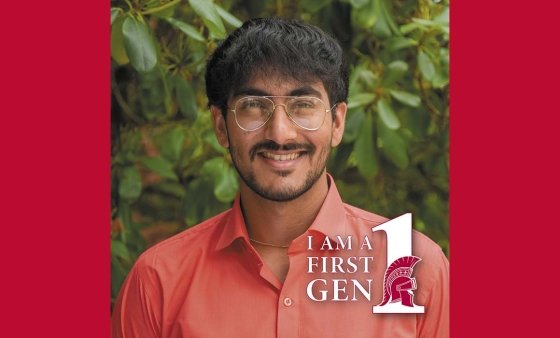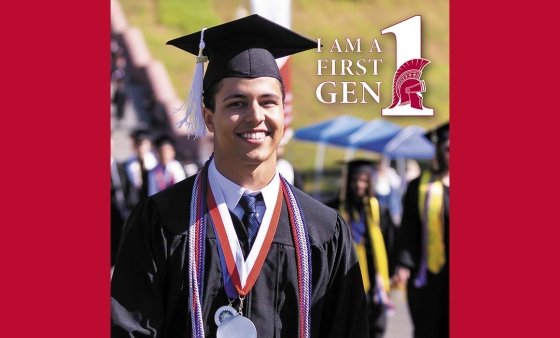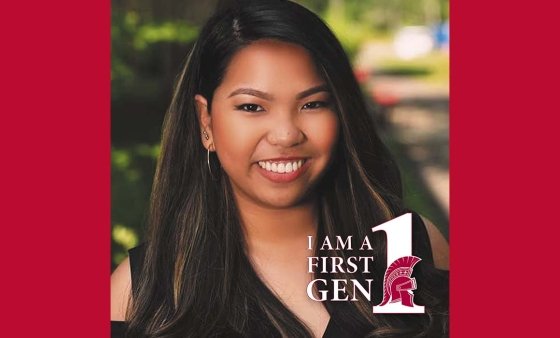Celebrate First-Gen: Mirta Maravilla Rosas '20

Being a first-generation student means breaking the intergenerational cycle of education level.
- Mirta Maravilla Rosas
- Class of 2020
What does being a first-generation college graduate mean to you?
Being a first-generation student means breaking the intergenerational cycle of education level. Having been raised in a low-income household, achieving a higher education meant having the possibilities for higher income salaries, better working conditions, and a better quality of life in general. Obtaining a college degree was the highest educational accomplishment in my family lineage as the first person to go to college.
How did this shape your college experience?
As a first-generation student, I found myself seeking out professors that would serve me as mentors throughout my undergrad. Having these connections not only helped me gain assistance in lectures but also helped shape my interest in post-graduation work.
What were some of the challenges you faced? What are some of your proudest achievements as a first-generation college graduate?
My biggest challenge was not having any sort of guidance from my family to help me throughout my journey. Most of my peers had their parents to help them with their essays for college applications, as well as their financial forms, and bills but, I was on my own. I hunted for scholarships, filled out my FAFSA, taught myself how to study efficiently, and used the resources provided by SMU to guide me through college. After my junior year in college, I was selected as an intern for the Summer Infectious Diseases Internship at Fred Hutchinson Cancer Center. This internship introduced me to the field of public health and provided me with the opportunity to work on a retrospective research study. Furthermore, I was able to present an oral abstract that was accepted at the Annual Transplant & Cellular Therapy Meeting in Orlando, Florida. I am proud to say that through this study, I became a published author in the journal, Nursing Research.
Why did you go to college?
As a child, I was always very curious about nature and various science topics. I enjoyed reading about diseases such as the Black Plague and knew I wanted to further my studies in science. While in elementary, I had an English Language Learning (ELL) teacher that noticed my potential in academics and encouraged me to seek a college education. Although I didn’t have an exact idea of what career I wanted to have, I knew that I wanted to major in biology and work in the healthcare field.
What resources were most helpful for you?
Being able to have the support and help from my professors was the biggest resource that I had during college. They taught me better ways to study and provided me with guidance regarding different career possibilities. I also found the Campus Life workshops and events to be the perfect place to connect with other students and develop my own interpersonal skills.
How did this experience shape and inform the work you do now?
Being a first-generation student forced me to get out of my comfort zone and use the resources around me in order to achieve success. Through this experience, I was able to create connections and relationships that have helped me throughout my career. As I reflect on my experience, I am very proud of the academic success I achieved through my accomplishments regardless of the challenges I faced. However, had I not lived through those challenges, I wouldn’t have developed the tenacity and strength that serves me to this day.
Biology
If you dream of being a world changer in the biotechnology, health care or environmental protection industries, biology may be the best major for you.
- Campus
-
- Main (Lacey)
- Type of Instruction
-
- In Person
- Degree
-
- Bachelor of Science



